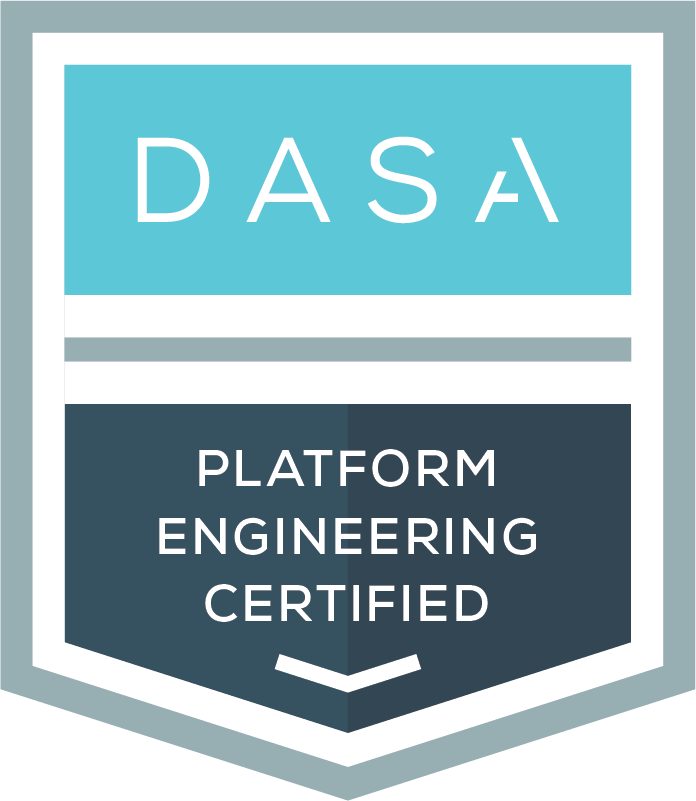As organizations continue to scale their digital operations, the need for efficient and reliable software delivery processes has never been greater. Two key disciplines that have emerged to address these challenges are Platform Engineering and DevOps. While they share common goals, they are distinct in their focus, scope, and approach. Understanding the differences—and how they complement each other—can help organizations maximize their technology investments and achieve their digital transformation goals.
In this article, we’ll explore what sets Platform Engineering apart from DevOps, how they intersect, and why both are essential in modern IT operations.
What is Platform Engineering?
Platform Engineering, as we discussed in the previous article [LINK], is the practice of designing, building, and maintaining the foundational technology platforms that support scalable, high-performance digital services. It focuses on creating self-service platforms that enable development teams to deploy, monitor, and manage applications efficiently, without needing to worry about the underlying infrastructure.
The primary goal of platform engineering is to abstract the complexity of infrastructure management, providing development teams with a robust, scalable, and automated environment that allows them to focus on building features and delivering value.
What is DevOps?
DevOps is a cultural and operational movement that aims to bridge the gap between software development (Dev) and IT operations (Ops). It emphasizes collaboration, automation, and continuous delivery, with the goal of improving the speed, quality, and reliability of software deployments.
The DevOps practices are designed to break down silos between development and operations teams, fostering a culture of collaboration and shared responsibility for the entire software delivery lifecycle.
Key Differences Between Platform Engineering and DevOps
While Platform Engineering and DevOps are closely related, they serve different purposes within an organization. Here’s a closer look at their key differences:
| Category | Platform Engineering | DevOps |
| Scope and Focus | Focuses on building and maintaining the infrastructure and tools that development teams use to deliver software. It is concerned with the creation of a scalable, reliable, and self-service platform that supports the entire software development lifecycle. Deals with the “how” of infrastructure management—how infrastructure is provisioned, how environments are standardized, and how services are monitored and secured. | A broader cultural and operational philosophy that encompasses the entire software delivery process. Focuses on fostering collaboration between development and operations teams to ensure that software is delivered quickly and reliably. Deals with the “what” and “why” of software delivery—what processes are in place to ensure continuous integration and delivery, and why these processes are important for achieving business objectives. |
| Primary Objectives | The main objective is to create a platform that abstracts the complexities of infrastructure, making it easier for developers to deploy and manage applications. Aims to reduce the operational burden on development teams by providing them with standardized, automated tools and environments. | The primary objective is to accelerate the software development and delivery process through automation, collaboration, and continuous improvement. Aims to shorten the development lifecycle while ensuring that software is of high quality and can be delivered reliably. |
| Roles and Responsibilities | Platform engineers are responsible for building and maintaining the platform that supports software development and deployment. This includes managing infrastructure as code, setting up CI/CD pipelines, ensuring observability, and integrating security practices into the platform. | DevOps engineers work across both development and operations teams to implement and maintain CI/CD pipelines, automate deployment processes, and ensure that infrastructure and applications are monitored and optimized. Their role is to facilitate the continuous delivery of software and ensure that it can be deployed reliably at scale. |
How Platform Engineering and DevOps Complement Each Other
While Platform Engineering and DevOps have distinct focuses, they are highly complementary. In fact, they often intersect and support each other in the following ways:
Enabling DevOps through Platform Engineering
Platform engineering provides the necessary infrastructure and automation that make DevOps practices possible. By creating a robust, scalable, and automated platform, platform engineering enables development teams to implement DevOps practices like continuous integration, continuous delivery, and infrastructure as code. For example, a platform engineering team might create a standardized CI/CD pipeline that development teams can use to deploy their applications. This pipeline, built and maintained by platform engineers, enables DevOps practices by automating the testing, integration, and deployment processes.
Reducing Operational Burden
One of the key goals of both platform engineering and DevOps is to reduce the operational burden on development teams. Platform engineering achieves this by abstracting the complexity of infrastructure management, while DevOps does so by automating repetitive tasks and ensuring that software can be delivered quickly and reliably. Together, these disciplines ensure that developers can focus on writing code and delivering features, rather than managing infrastructure or dealing with deployment issues.
Improving Collaboration and Efficiency
DevOps emphasizes collaboration between development and operations teams, and platform engineering plays a crucial role in facilitating this collaboration. By providing a unified platform that all teams can use, platform engineering helps to break down silos and ensure that everyone is working from the same set of tools and practices. This alignment improves efficiency and ensures that all teams are working towards the same goals—delivering high-quality software quickly and reliably.
When to Use Platform Engineering vs. DevOps
While both Platform Engineering and DevOps are essential for modern IT operations, organizations might emphasize one over the other depending on their specific needs:
- Platform Engineering: If your organization is struggling with infrastructure complexity, scalability, or the need to standardize environments across multiple teams, platform engineering may be the priority. It’s particularly valuable in large enterprises or organizations with complex infrastructure needs, where creating a robust, automated platform can greatly reduce operational overhead.
- DevOps: If your organization’s primary challenge is speeding up the software delivery process, improving collaboration between development and operations, or ensuring continuous delivery, then focusing on DevOps practices may be the right approach. DevOps is crucial for any organization that needs to improve the speed and reliability of its software releases.
Final Thoughts
Platform Engineering and DevOps are both critical components of modern IT operations, each with its own focus and objectives. While platform engineering provides the infrastructure and tools necessary for scalable and efficient software development, DevOps ensures that software can be delivered quickly and reliably through collaboration, automation, and continuous improvement.
Understanding the differences and synergies between these two disciplines allows organizations to better structure their teams, processes, and technologies to achieve their digital transformation goals. By leveraging the strengths of both platform engineering and DevOps, organizations can build a resilient, scalable, and agile technology foundation that drives innovation and business success.


DASA Platform Engineering
De-risk, optimize, and get maximum value from the platform engineering initiative.
